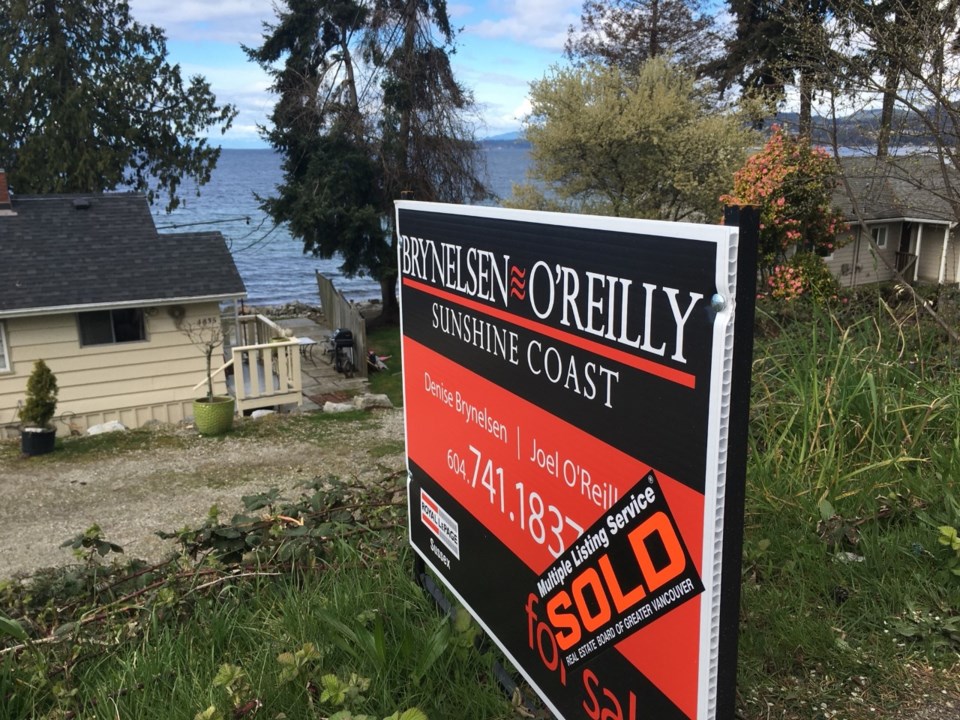While three-quarters of Metro Vancouver markets saw home price declines, detached house prices on the Sunshine Coast and Squamish held steady from the first quarter to the second quarter (Q2), a new Re/Max Canada report says.
High-priced West Vancouver and Vancouver’s west side are also bucking downward price trend, according to the 2022 RE/MAX Hot Pocket Communities Report released August 18, which looked closely at municipalities across the Metro Vancouver region.
"Buyer sentiment changed virtually overnight as growing geopolitical concerns and spiralling inflation destabilized global markets, leaving the Bank of Canada little option but to raise interest rates," says Christopher Alexander, president at Re/Max Canada, in a statement. "Those fast and furious incremental increases placed downward pressure on housing sales and prices, improving affordability on one hand, but eroding it on the other."
The report said while detached housing values showed substantial year-over-year gains in the first half of 2022, successive increases to the Bank of Canada's overnight rate put a damper on price appreciation in the second quarter of the year in both the Greater Toronto and Vancouver regions.
The central bank surprised market watchers July 13 with a hike of 100 basis points, bringing its target for the overnight rate up to 2.5 per cent.
Re/Max said at the time it was the bank’s biggest move since 1998, and the fourth in a series of increases expected for 2022, as the bank tried to tamp down the soaring inflation rate.
The study found core markets in Vancouver’s west side and West Vancouver/Howe Sound bucked the downward price trend in terms of preliminary estimates of Q2 median values, posting increases of 2.4 per cent and 8.2 per cent, respectively.
Further north, Squamish and the Sunshine Coast also held steady, with no value changes reported between the first and second quarters.
The current benchmark price of detached house on the Sunshine Coast is $997,000 and it is $1.78 million in Squamish, according to the Real Estate Board of Greater Vancouver. This compares with more than $3.3 million in both Vancouver’s west side and West Vancouver.
Re/Max found that 75 per cent of Greater Vancouver markets experienced a downturn in second median values, coming off peak levels reported in 2022’s first quarter.
Most of the declines reported were below 10 percent, with one outlier — Whistler/Pemberton, which fell by just over 16 per cent.
In the Fraser Valley, percentage declines in average price ranged from a low of just over 3 per cent in Langley to a high of close to 13 per cent in Delta-North between the first and second quarter.
The report found Burnaby, Coquitlam and Port Coquitlam to be among Metro Vancouver’s most durable areas.
These established communities are drawing purchasers who are looking for affordable detached housing with good accessibility to the downtown core, with preliminary estimates of the Q2 median values ranging from just $1.44 million in Port Coquitlam to $2.12 million in Burnaby.
North Vancouver and Squamish have also held up well, with both experiencing rapid growth well before it was further accelerated by the pandemic.
The report said market shifts could be good for condo owners looking to jump to a detached home or detached owners looking to upsize.
The report explained that the 'spread' — the difference between an existing property’s selling price and the purchase price of a new one — has narrowed. So, with mortgage portability, the move can work in favour of the buyer.
“Condominium and strata owners have also seen benefits in the 'spread' as values for their apartments and townhomes have remained relatively stable, while detached housing values have softened,” the report said.



